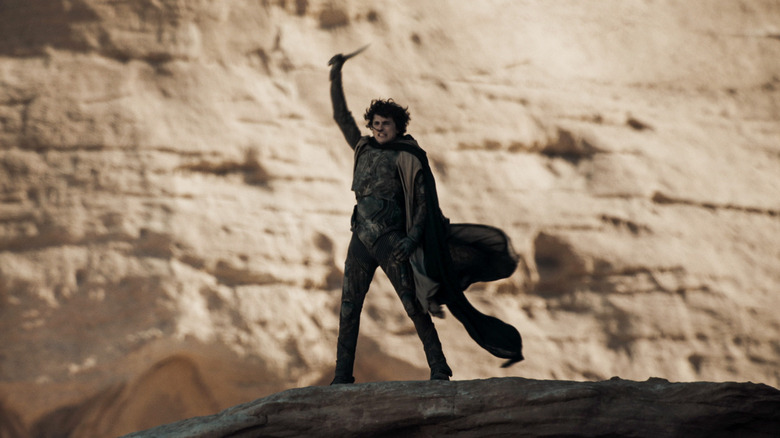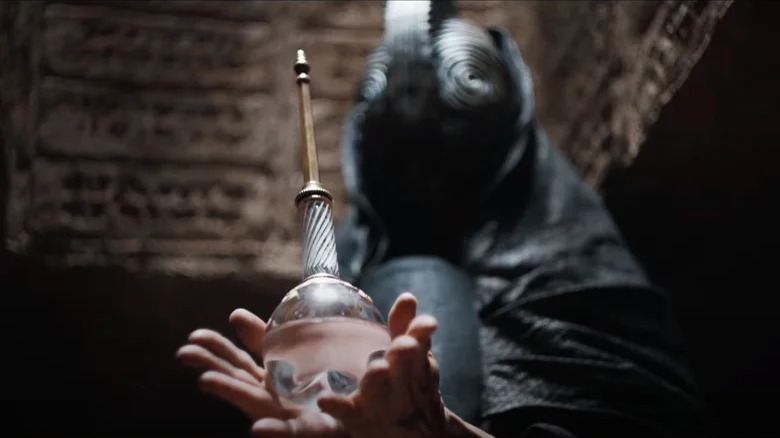Why Dune Director Denis Villeneuve Wants To Adapt Dune: Messiah
Denis Villeneuve's "Dune" is one of the best big-budget sci-fi movies of the past few years, a fantastic adaptation that captures the epic scope of Frank Herbert's magnum opus, its politics, vast world-building, and most importantly, its cautionary tale about messiahs.
While we wait for the delayed "Dune: Part Two" to bring the second part of the story and to finally show Paul riding a freaking sandworm, Villeneuve is looking forward to what's next. As soon as "Dune" came out, the director started teasing his wish to adapt Frank Herbert's "Dune Messiah."
Now, Villeneuve reiterated his hopes when talking to Empire. "If I succeed in making a trilogy, that would be the dream," he said. What's more, Villeneuve teased more than just hopes, saying "there are words on paper," for his take on "Dune Messiah."
Of course, there is a lot more "Dune" after "Messiah," including books written by Herbert's son Brian, so why does Villeneuve's vision end after three movies? Well, it boils down to the thesis in this book adaptation. "'Dune Messiah' was written in reaction to the fact that people perceived Paul Atreides as a hero," Villeneuve explained. "Which is not what he wanted to do. My adaptation [of 'Dune'] is closer to his idea that it's actually a warning." The director went on to say that after "Dune Messiah," the other books become more "esoteric."
'I live in an apocalyptic dream'
Villeneuve isn't wrong. "Dune Messiah" is in some ways a rebuttal of the hero's journey of Paul from the first book, a story that shows the futility of believing in chosen ones and the violence Paul has started. We already have seen the seeds of this in Villeneuve's "Dune." The first movie has Paul angrily shout at his mother for giving him the ability to look into the future, and for carving out his rise to power. He sees visions of a future wherein he commands large armies, and all he can focus on is the death and destruction he causes. He is not a freedom fighter or an agent of revenge, he is a pawn in a grand plan he is unable to escape. The trailers for "Part 2" have expanded on this idea, with Paul horrified over the future he is creating, knowing the pain he is causing
As for Villeneuve's comment that the next books get esoteric, he has a point but he is also wrong to stop before the story gets weird. It is the sequels that truly show how special Herbert was at not just writing sci-fi stories that reflected our world, but at pulp fiction with bizarre and cool ideas, like men who turn into giant sandworms, clones of familiar characters, and much more. What I'm saying is, we need "God Emperor of Dune" and for James McAvoy to return to the role of Leto II.

